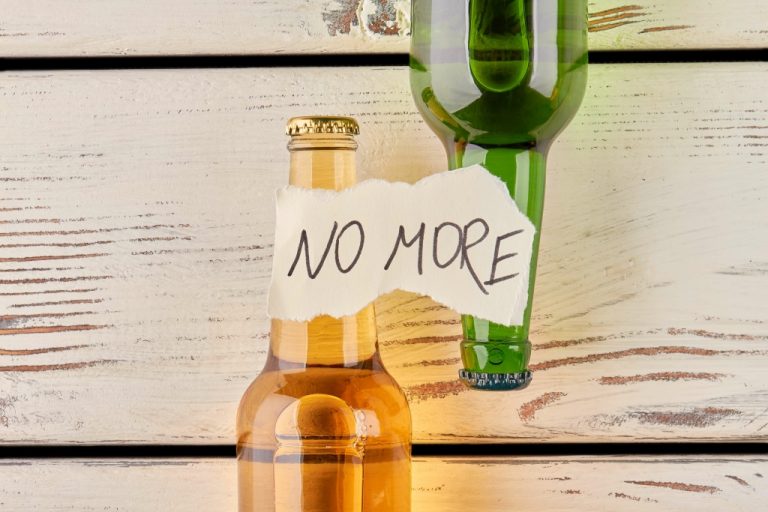“If you’re in any doubt, speak to a medical professional first and be honest about how much you’re drinking.” Whatever your reasons for wanting to quit drinking, there are so many benefits for all of us to be more mindful of reducing the harmful effects of alcohol in our lives. While sobriety often refers to permanently abstaining from alcohol, sober curiosity involves exploring life without alcohol and deciding if it’s right for you. Alcohol slows down the function of the brain, which transfers information from your short-term memory to long-term memory storage. This is similar to someone sending you a package, but during transit, the package is lost.
Calm your mind. Change your life.
Many of these TAAC participants report benefits, such as positive effects on sleep, weight, and self-rated health, and reduced levels of alcohol consumption following a TAAC. Mental clarity is another significant benefit of being sober curious. Alcohol is a depressant that can negatively affect mood, cognition, and mental health. By reducing alcohol consumption, individuals often experience enhanced focus, better decision-making, and a more stable emotional state. This mental clarity can lead to greater productivity, creativity, and a sense of fulfillment in daily life. If you find yourself questioning your drinking habits and realize that alcohol has become a problem, it might be time to reach out for professional help.
Mental Health Conditions We Treat
- Remember, you are not alone, and there is a community of individuals ready to support you every step of the way.
- And there’s actually no proven “safe” amount when it comes to cancer risk.
- Many people who try living soberly report seeing improvements in their physical health—whether that’s losing weight, feeling more energetic, or simply feeling better day-to-day.
- During these breaks, people often share their experiences of going alcohol-free through social media platforms, like Instagram and Facebook.
- When cutting back on alcohol, you will notice that within time, you will have more energy throughout the day.
You’ll wake up feeling refreshed, clear-headed, and proud of yourself. Stock Sober living house up on non-alcoholic options you love, like alcohol-free beers, kombucha, or fancy mocktails. Cutting back on alcohol freed up my weekends – no more days lost to hangovers or sluggishness. I started spending that time doing things that actually made me feel good, like morning walks, paddle-boarding, or trying out new hobbies.
Improved relationships

You might not identify as an alcoholic, and you may not want to commit to sobriety forever. Instead, you’re open to discovering how sobriety might improve your mental clarity, relationships, health and overall happiness. People choose to be sober curious for various reasons, and sometimes they can be deeply personal. Some are motivated by health concerns, such as the desire to lose weight, improve sleep, or reduce the risk of chronic diseases linked to alcohol consumption. Others sober curious are driven by mental health considerations, recognizing that alcohol can exacerbate anxiety, depression, and other mental health issues. Most importantly, pay attention to your body, and be aware of the effects of alcohol on your mind and body.

- While some studies suggest that a glass of red wine can be beneficial for cardiovascular health, experts widely agree that overconsumption of alcohol presents a problem.
- 💙 Awaken to your full potential by Saying Yes to Life and seeing just how beautiful life can get when the pressure to drink falls away.
- Remember that socializing without social drinking can be just as enjoyable, if not more so.
- Ideas you might explore include local recreation centers or parks, art classes, reading, playing an instrument, or dancing.
- By focusing attention on health and well-being, engaging in SC approaches may provide opportunities to help people make informed decisions about their drinking behavior.
- Ultimately, exploring the sober curious movement is a personal journey.
“The goal is not to isolate and to socialize in environments where there is no temptation to drink because alcohol is not served or part of the equation,” explains Hafeez. For Bex being sober has “allowed me to feel in a much better headspace. The Brown University Health Blog Team is working to provide you with timely and pertinent information that will help keep you and your family happy and healthy. You can also call or text 988 nationwide to connect with local support systems.

Focus on how the benefits of sobriety outweigh the losses
Sober curiosity is a term that refers to someone who is currently questioning their experience with alcohol use, and while not quite ready to try sobriety, is thinking seriously about it. As a whole, the sober curious movement is a group of individuals who questions the role alcohol plays in social life, and as a lifestyle choice opt to drink less or eschew alcohol together. In a similar vein, some people are choosing to engage in observances, such as “Dry January” or “Sober October,” in which people take a break from alcohol consumption. During these breaks, people often share their experiences of going alcohol-free through social media platforms, like Instagram and Facebook. Researchers call these alcohol-free intervals “temporary alcohol abstinence challenges,” or TAACs. Research from international contexts, primarily in the United Kingdom and Australia, has found that TAAC participants may be motivated by concerns about the effects of alcohol on their health.
Focus on your why
- You’ll begin to question the role alcohol plays in your life and learn to make conscious choices about alcohol use in social settings, during meals, or at celebrations.
- “After reducing your alcohol intake, mentally you may feel more intentional, more present, and more connected to those around you,” says John Herman, co-founder of non-alcoholic beer brand BERO.
- Consider taking a break from friends who might, whether they mean to or not, make you feel pressured to drink socially.
- They are also shifting toward alcohol-free beverages at a significantly higher rate.
It can make cutting back feel challenging, especially without a clear plan. ‘I’m just taking a break’, or, ‘I’m trying something different’ usually does the trick without inviting further questions. Maybe it’s sticking to non-alcoholic options all night or leaving early if the atmosphere gets too boozy.